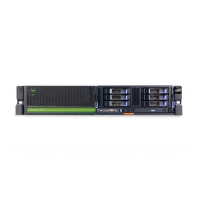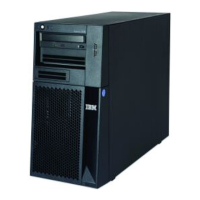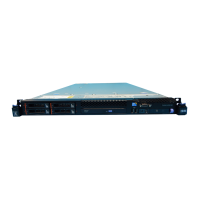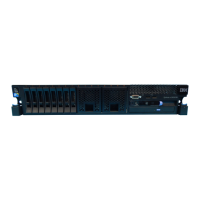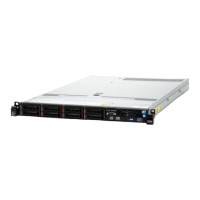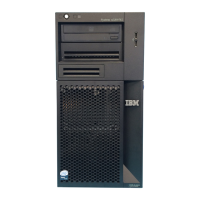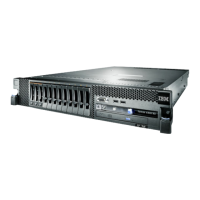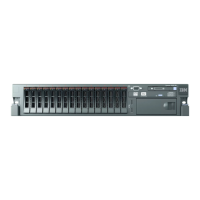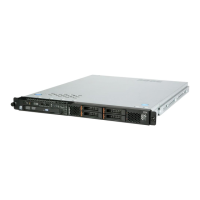Operating System/400 (5722-SS1) 473
Operating System/400 (5722-SS1)
• Hierarchical Storage Management: OS/400 includes Hierarchical Storage
Management (HSM) APIs used by Backup and Recovery Media Services for iSeries
(BRMS), 5722-BR1, to provide HSM functions. Use these APIs to develop custom
HSM applications.
• Concurrent DASD maintenance: Is supported on an appropriately-configured iSeries
9406 mirrored, mixed mirrored, and device parity protected systems. With a proper
configuration, the system can operate successfully while experiencing a DASD failure
and subsequent repair action. Diagnosis and repair may require active mirrors to be
temporarily suspended.
Some users may prefer to defer maintenance until all normal operations are completed. In
some conditions (for example an IOP failure), the repair action requires that the system
be powered off.
• Concurrent maintenance (as of V4R3): Included for I/O cards, power, and other
components contained in expansion towers. You can power off an expansion tower and
add, remove, replace, upgrade, move, or swap a card or other component without
stopping or powering off your system.
Applications that use hardware resources in that expansion tower may need to be
stopped and restarted. When the expansion tower is powered back on, new or changed
hardware resources are automatically recognized and associated with existing resource
names, if appropriate, to preserve existing configuration information and to allow
applications to immediately use these resources without having to IPL.
• Concurrent maintenance and hot swap capability (with 2xx or 8xx hardware with
V4R5): Hot swap capability allows the operator to identify IOPs and associated IOA cards
and turn individual or groups of slots off for concurrent maintenance of PCI cards.
Logical Partitions (LPAR)
Logical Partitioning enhances the role of the iSeries as a consolidated server. LPAR is of
value to customers who need server consolidation, business unit consolidation, mixed
production, and a test environment, as well as integrated clusters. With LPAR, companies
have both the power and flexibility to address multiple system requirements in a single
machine to achieve server consolidation, business unit consolidation, mixed production/test
environments, and integrated clusters.
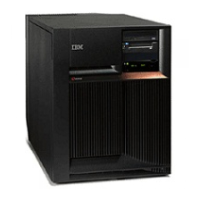
